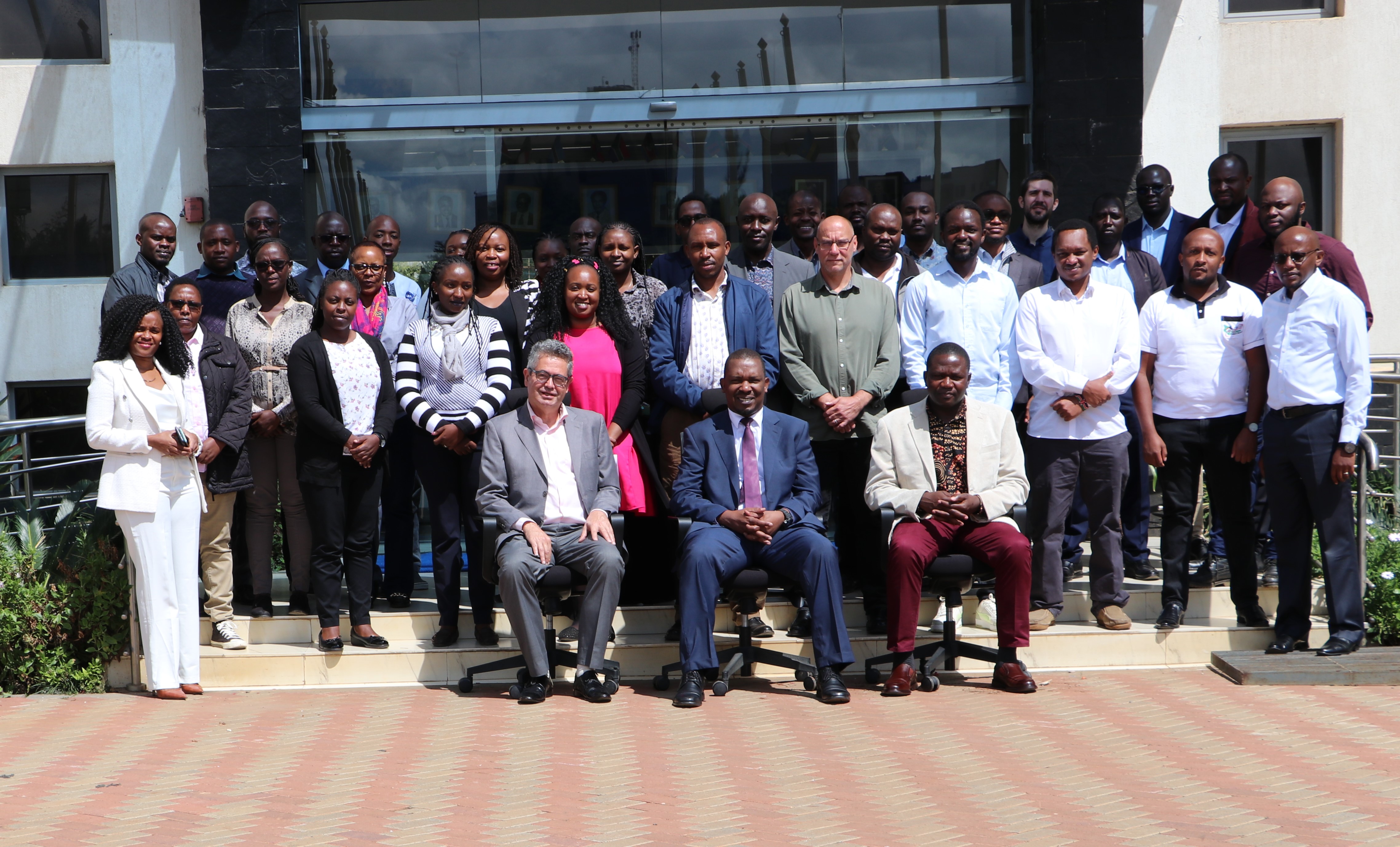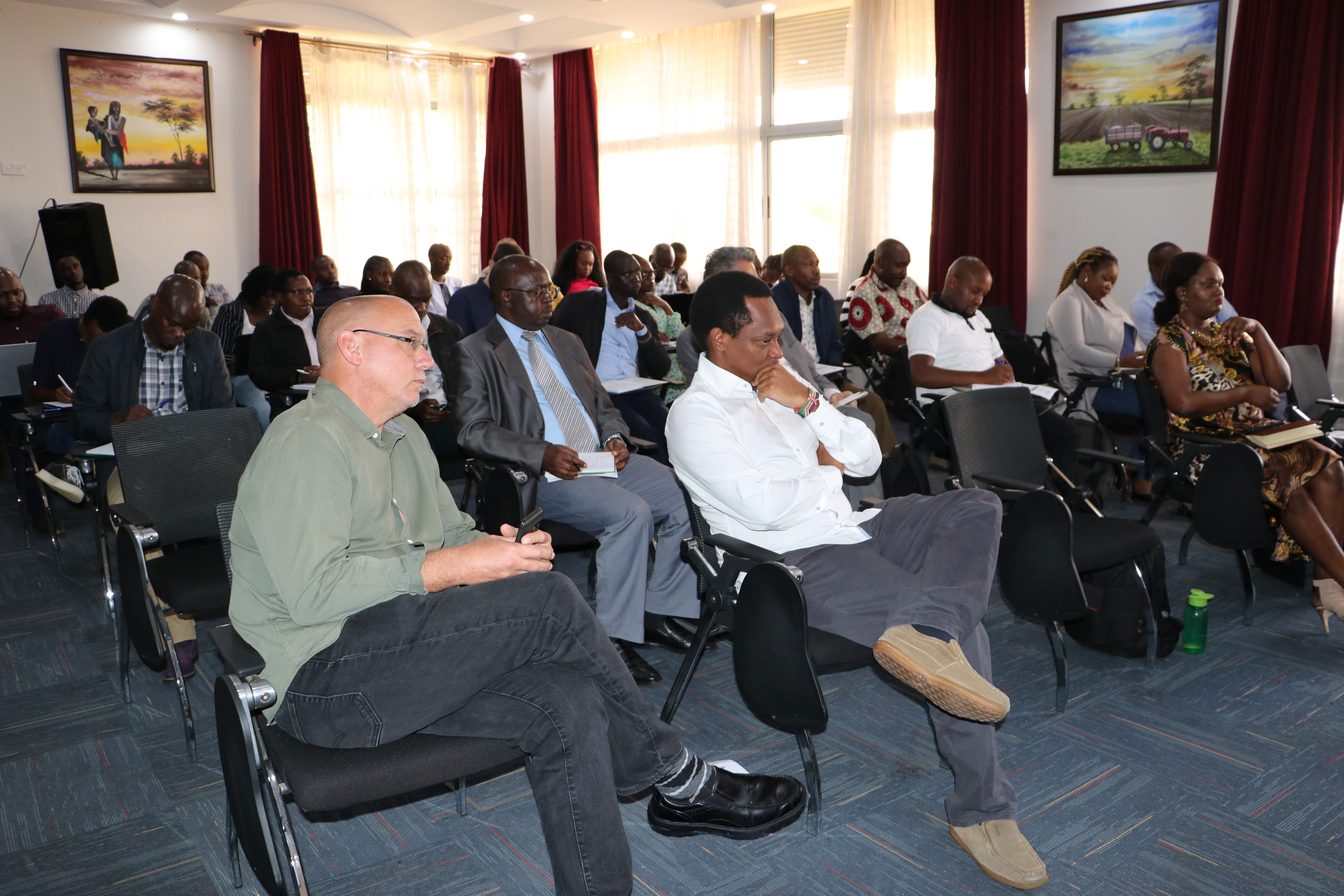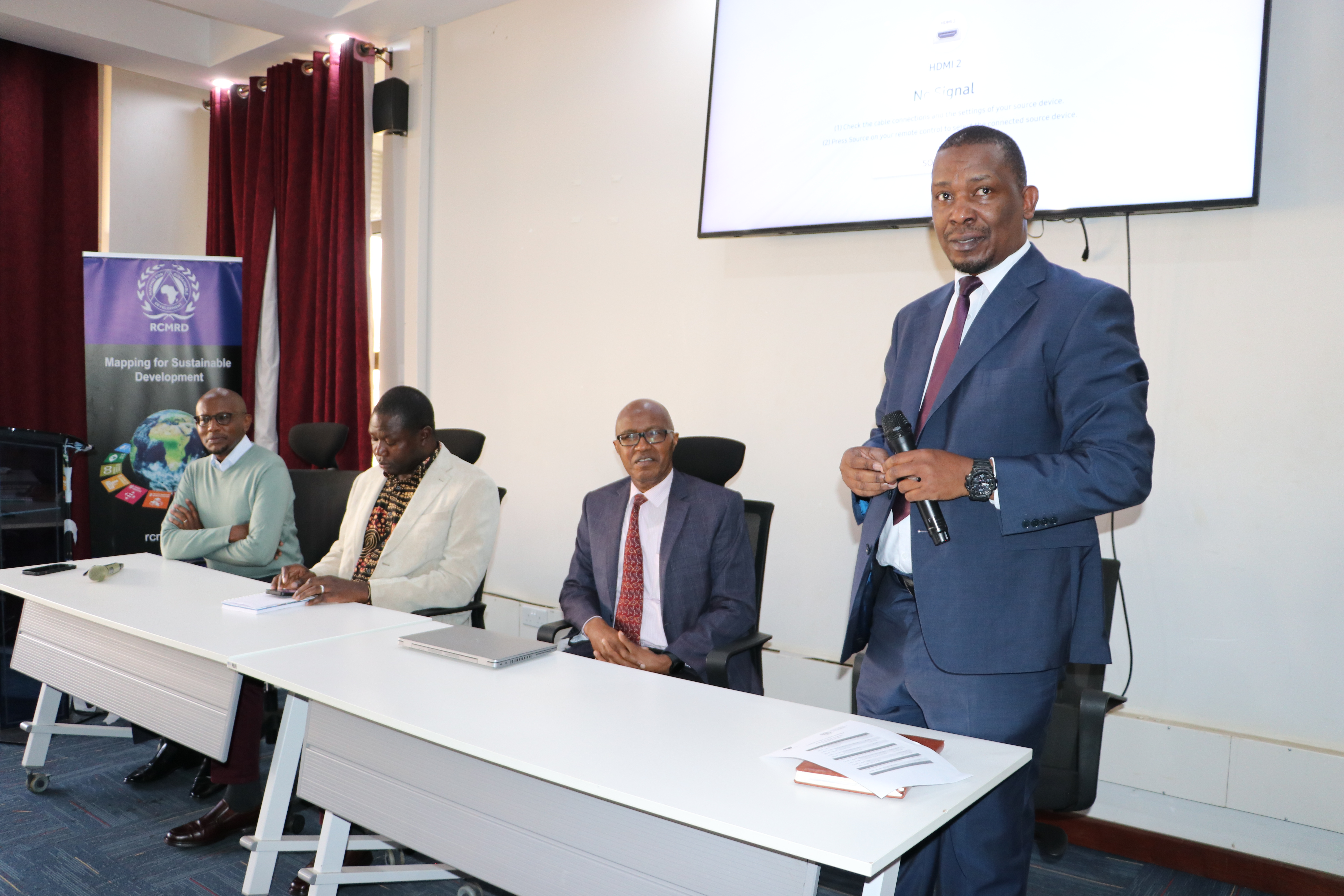The Regional Centre for Mapping of Resources for Development (RCMRD) and the Kenya Space Agency held a one-day National Earth Observations Practitioners workshop. There were 50 participants who are stakeholder representatives from the Kenya EO industry from the public sector, private sector, international partners, and academia.
The workshop explored the use of Earth Observations for addressing development challenges being experienced in the country, building and improving the resilience of communities to disasters and climate change. Keynote Speaker, Dr. Kiringai Kamau, the Acting CEO, Global Open Data for Agriculture and Nutrition (GODAN) Secretariat, and GODAN Lead for Africa, gave highlights of how GODAN had been integrating EO in supporting local farmers, citing examples from the “Shamba Solutions” that links farmers to soil information and proprietary fertilizers, and the model around the communities of practice that had been championed by GODAN to steer, priority challenges by key stakeholders.
The Chief Guest, Ir. Jared Omondi Buoga the Delivery Director at the President's Delivery Unit - Executive Office of the President of Kenya, implored the stakeholders to use technology to address challenges facing Kenya and globally. He gave the examples of disasters such as floods, droughts, earthquakes, landslides and food insecurity facing Africa and Kenya in particular.
On his part Mr. Paul Idude the Director of Corporate Services at RCMRD said Geospatial technologies and remote sensing are valuable resources to monitor the United Nation's Sustainable Development Goals (SDGs) and their corresponding targets and indicators.
He added that they allow for unbiased observation and analysis across borders and nations. Furthermore, geospatial information and technologies are particularly critical to strengthening urban and rural resilience, where economic, agricultural, and various social sectors intersect. He urged the participants to establish a Kenya-GEO following in the footsteps of South Africa and recently Nigeria. He encouraged Kenya to set the pace for East Africa given that RCMRD, the host of the AfriGEO Secretariat is hosted by Kenya.
Mr. Charles Mwangi, the Ag. Director, Space Sector & Technology Development discussed about the role of the Kenya Space Agency (KSA). In his presentation, he highlighted some of the activities that the Agency is involved in to nurture and support the development of the space sector, in relation to Earth Observation.
He highlighted some of the key innovations being undertaken by KSA that seeks to spur the utilization of space-derived data. This includes the setting up of Data Portal for Space Science and Geospatial data as well as the launch of the Taifa-1 Sat is Kenya's first operational earth observation satellite. It is equipped with an optical camera that takes pictures simultaneously in multispectral and panchromatic modes enabling it to operate within and beyond the visible light spectrum.
Ms. Anastasia Wahome, RCMRD gave a presentation on the RCMRD contributions to its member states supporting them to respond to development challenges around: Agriculture ad Food Security, Land Use Change and Ecosystems, Water and Related disasters and well as weather and climate. Further, The Point of Contact for the AfriGEO secretariat made presentations on the guidelines for setting up National Coordination mechanisms.
This stakeholder meeting had a key objective to engage the stakeholders in the need to have a national Group on Earth Observation where all EO practitioners could come together to engage, contribute and collaborate. The mechanisms around that would build upon experiences of pioneer countries like SA and Nigeria that had already established their National GEO’s, while also looking at enabling structures for Kenya and the need to have its long-standing goal that the country had been discussing for a while, a National Spatial Data Infrastructure. At the end of the meeting the following Communities of Practices (Agriculture and Food Security; Natural Resources Management; Data Governance & Infrastructure; Human Settlement and Spatial Planning; Health systems; and Disaster Risk Reduction and Climate action) were adopted, more deliberations and modalities of engagement shall follow.
















